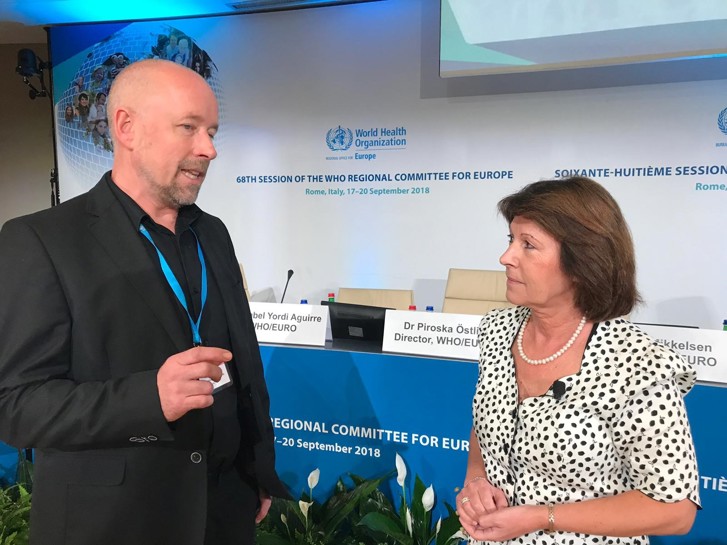- Svenska
- English
The 68th session of the WHO Regional Committee for Europe kicked off in Rome on Monday. Among the items on the agenda: the strategy on health and well-being of men in the WHO European Region. Growing evidence points to the importance of gender-sensitive approaches to accelerate progress for health and well-being of both women and men. Meet Professor Lars-Gunnar Engström who is in Rome to represent the Swedish Gender Equality Agency. We talked to him about the strategy and the importance of recognizing men and boys in the promotion of healthy gender norms.

Professor Engström, why is this such an important and ground-breaking strategy?
Including men in the work for gender equality is crucial for success. Through the strategy it will be possible to show that also men can and will benefit from increased gender equality. This will hopefully be a way of engaging more men and also policy makers that perhaps previously have not been able to fully see why gender equality is important for society.
What measures are essential in order to create better conditions for promoting positive health development for men?
Finding effective measures that can influence and change harmful masculinity norms. Information, positive examples, role models etc that can contribute to the process of defining positive male norms in the eye of men as well as women. I believe that continuously working, through information, opinion-forming, political reforms etc. on parents sharing their paid parental leave more equal is one important way in achieving both changes in norms but also in creating better health for men.
The Gender Equality Agency is a newly formed and, in the world, unique agency. However, Sweden has used gender mainstreaming since 1994 and the same strategy was adopted by the UN in 1995. What do you think are future key issues and challenges for gender equality work in Sweden where we now have a long-standing experience in the field?
The establishing of a Gender Equality Agency in Sweden is in itself a signal that accentuates that gender equality is a highly prioritized policy area in Sweden. Putting an end to men’s violence against women is and should be of highest priority. Masculinity norms again. It relates to most issues of gender equality as power relations, violence, inequalities in the labour market. How can we communicate about masculinity and how do we find measures for change? We also face new challenges to gender equality through for instance increased economic and social gaps and segregation between groups. How do we make sure that these groups are included in our striving for gender equality?
Read more about the Swedish Gender Equality Agency here as well as WHO’s strategy on health and well-being of men here.
Have a look at the Swedish government’s gender equality policy here.